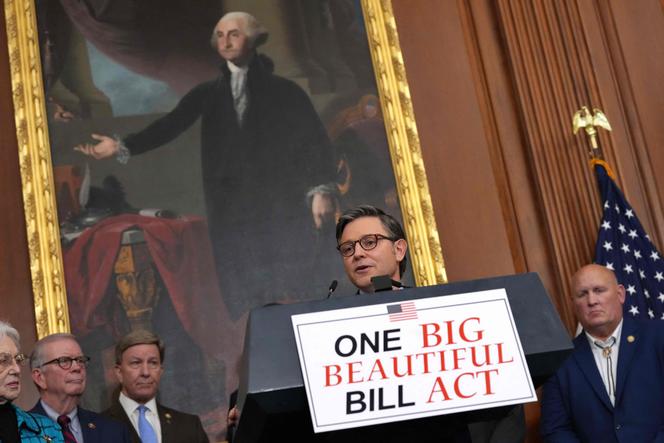

"One Big Beautiful Bill Act." The title of the bill passed on first reading Thursday, May 22, by the House of Representatives reflects Donald Trump himself: lacking nuance, simplistic and boastful.
The bill is, indisputably, big. It includes the core of the president's legislative and budgetary priorities, from extending tax cuts to funding the deportation of undocumented migrants, along with sweeping cuts to welfare programs and increased military spending. As for its supposed beauty, that remains a more subjective question.
Politically, it was undeniably a success, even if passed narrowly by a single vote. It came amid Democratic losses in the House and required the full force of the president to unify the Republican Party. With that hurdle cleared, the bill must now be debated in the Senate, where Trump aims to see it passed by July 4.
However, the overall balance of the bill leaves much to be desired. In order to extend the tax cuts enacted during his first term, Trump reversed his campaign promise not to cut welfare programs. Health insurance for the most vulnerable faces significant reductions, leaving several million Americans without coverage. While the tax provisions favor the wealthiest, the poorest 40% risk seeing their living conditions deteriorate.

Funders and financial markets will also find little to appreciate in the "beauty" of this piece of legislation, which will deepen the budget deficit and swell public debt. According to independent estimates, public debt is expected to rise by $3.3 trillion, pushing the debt-to-GDP ratio from 98% to 125% by the end of 2034.
The financial rating agency Moody's, which downgraded the US sovereign rating on May 16, now projects an annual deficit of 9% of GDP within 10 years, up from 6.4% in 2024. This is unprecedented in peacetime. This policy of unchecked spending is deliberate, even as annual interest payments on the debt already reach $880 billion – more than the combined budgets for defense and Medicare (the national health insurance program for seniors and disabled people).
US debt remained manageable as long as the US dollar served as the world's reserve currency and US Treasury bonds were seen as the safest assets, encouraging the rest of the world to fund the US's deficits. But the trade war launched by Trump has weakened the safe-haven status of US assets. Investors now demand higher yields on Treasury bonds, which raises the cost of debt.
The sharp response in bond markets in April, triggered by across-the-board tariff hikes, forced the White House to backtrack. Nonetheless, Trump renewed his threats on Friday, May 23, vowing to impose 50% tariffs on European exports. The bill's passage on first reading revived tensions among investors. The rising yields on 10 and 30-year bonds reflect growing concern about the US's ability to meet its debt obligations. Once again, the markets could serve as the ultimate arbiter.
Translation of an original article published in French on lemonde.fr; the publisher may only be liable for the French version.
